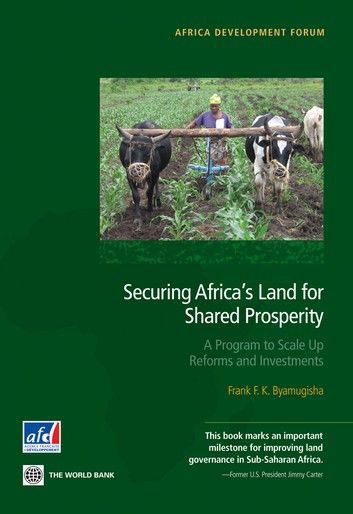| FindBook |
|
有 1 項符合
frank f. k. byamugisha的圖書 |
 |
$ 433 電子書 | Securing Africa's Land for Shared Prosperity
作者:Frank F. K. Byamugisha 出版社:World Bank Publications 出版日期:2013-06-05 語言:英文  看圖書介紹 看圖書介紹
|
|
|
圖書介紹 - 資料來源:樂天KOBO 評分:
圖書名稱:Securing Africa's Land for Shared Prosperity
This is the first book on land administration and reform in Sub-Saharan Africa, and is highly relevant to all developing countries around the world. It provides simple practical steps to turn the hugely controversial subject of "land grabs into a development opportunity by improving land governance to reduce the risks of dispossessing poor landholders while ensuring mutually beneficial investors deals. The book shows how Sub Saharan Africa can leverage its abundant and highly valuable natural resources to eradicate poverty by improving land governance through a ten point program to scale up policy reforms and investments at a cost of USD 4.5 billion. The book points out formidable challenges to implementation including high vulnerability to land grabbing and expropriation with poor compensation as about 90 percent of rural lands in Sub Saharan Africa are undocumented, but also timely opportunities since high commodity prices and investor interest in large scale agriculture have increased land values and returns to investing in land administration. It argues that success in implementation will require participation of many players including Pan-African organizations, Sub Saharan Africa governments, the private sector, civil society and development partners; but that ultimate success will depend on the political will of Sub Saharan Africa governments to move forward with comprehensive policy reforms and on concerted support by the international development community. Its rigorous analysis of land governance issues, yet down-to-earth solutions, are a reflection of Byamugisha's more than 20 years of global experience in land reform and administration especially in Asia and Africa. This volume will be of great interest to and relevant for a wide audience interested in African development, global studies in land, and natural resource management.
|










